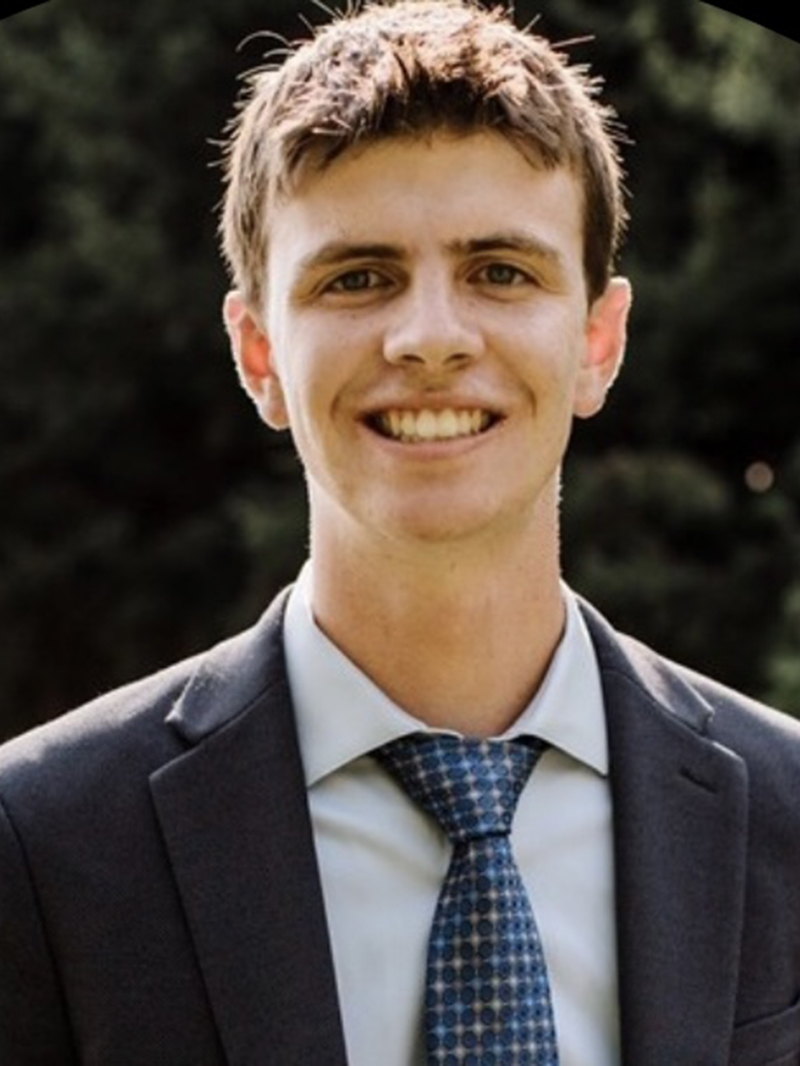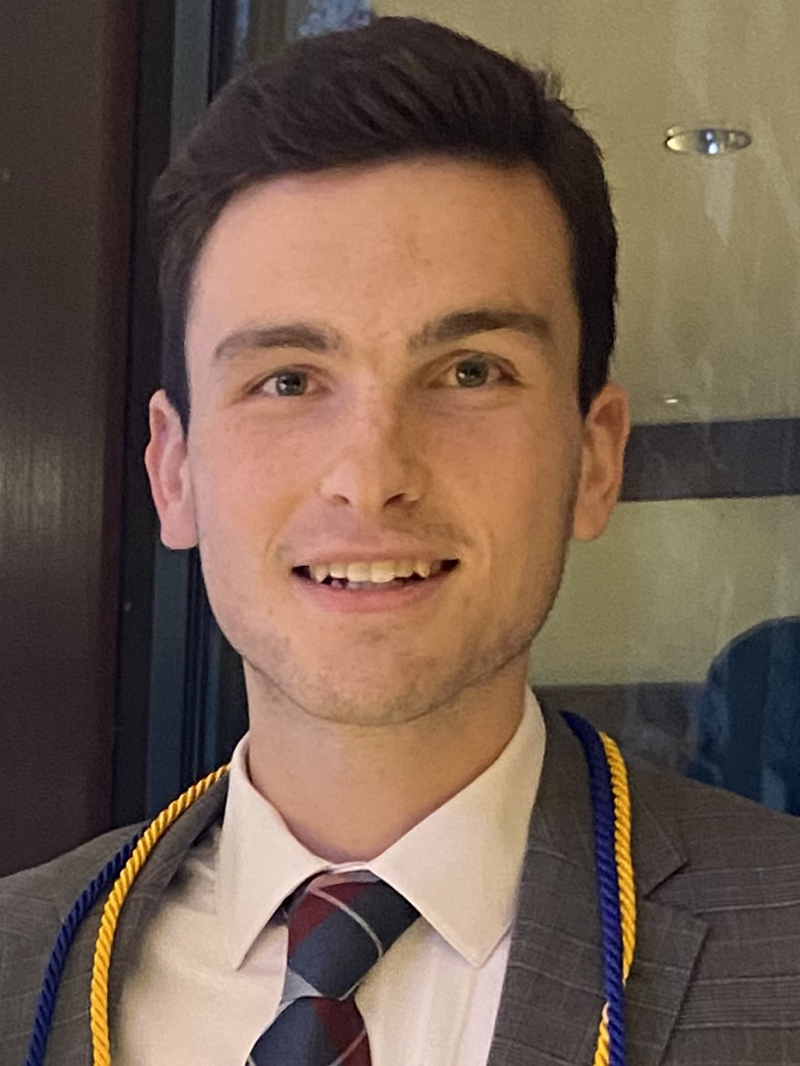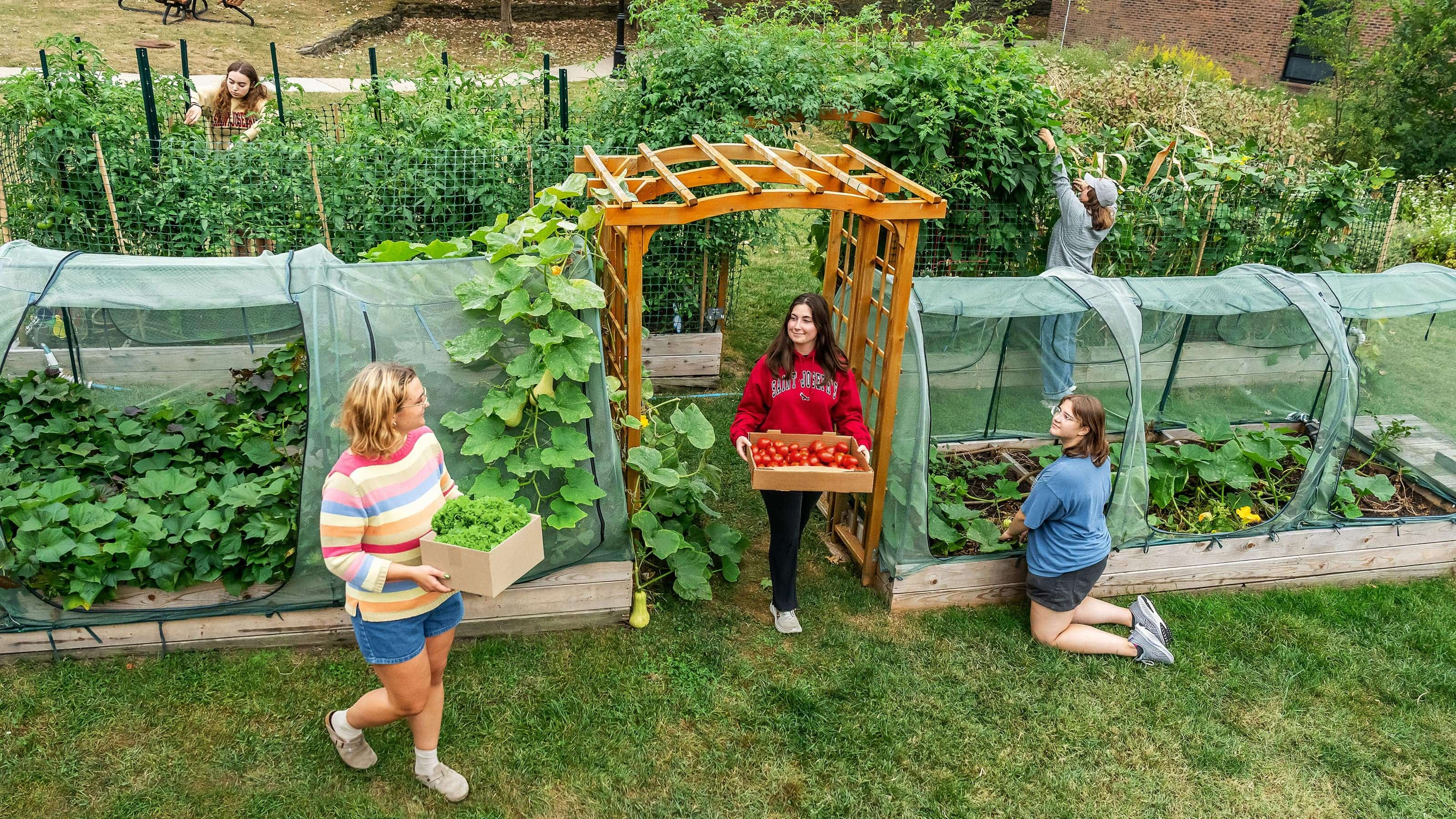Bringing Faiths Together One Conversation at a Time
Two Saint Joseph’s University students have been appointed by the United States Conference of Catholic Bishops to participate in an interfaith dialogue between Jewish and Catholic young adults.

Two Saint Joseph’s University students are now representing their respective dioceses, sharing insights with young adults from across the nation from Catholic and Jewish religious traditions. Matthew Dunne, BS ’25, a senior international business and business intelligence and analytics double major with a theology minor, and Joe Pro, BS ’25, a senior accounting and business intelligence and analytics double major, were appointed by the United States Conference of Catholic Bishops (USCCB) Secretariat of Ecumenical and Interreligious Affairs as part of the inaugural interfaith dialogue between Jewish and Catholic young adults.
In spring 2024, USCCB and the American Jewish Community (AJC) hosted three such interfaith dialogues with Saint Joseph’s University. Attendees, including Dunne and Pro, had the opportunity to break into small groups and provide their thoughts and personal experiences on discussion topics such as, “How do you view the common good?,” “What steps can we take to continue to foster positive relations between our communities?” and “How can we take these discussions and move them into practice?”

“I will always be thankful to St. Joe's because I never would have had an opportunity to do something so different and something that's been really rewarding,” says Dunne, a member of St. Eleanor Catholic Church in Collegeville, Pennsylvania.
Dunne has studied the history of Jewish and Christian relations and taken an advanced course in understanding the differences between Jewish and Christian interpretations of scripture with Professors Adam Gregerman, PhD, and Philip Cunningham, PhD. His personal experience with interfaith conversations encouraged him to study and participate in the formal dialogues between members of the Jewish and Catholic religious traditions.
“I have become passionate about learning about the different dialogues between the two faiths,” says Dunne. “I think this generation is going to determine how the next few generations are going to play out with how we treat each other.”
Pro is a member of St. Thomas More Parish representing the Catholic Diocese of Camden, a recipient of the Joseph M. Ragan ’69 scholarship in accounting and active in several student organizations at Saint Joseph’s.

He has been involved in organizing faith reflection opportunities for his peers on Hawk Hill and has also studied the history of the Jewish and Catholic religious traditions. A participant in the Spiritual Exercises of St. Ignatius Loyola, Pro is committed to faith discernment and dialogue as part of his college experience.
“Saint Joseph's blew away all my expectations by just allowing me all these different avenues and opportunities to grow my faith,” says Pro.
As they both look to enter the workplace in the spring, they hope to continue having these important interfaith dialogues.
“When you look at the world of business, you have to learn how to be among other people, communicate with them and form relationships. And I think that’s what these interfaith dialogue opportunities allowed me to do,” says Pro.



